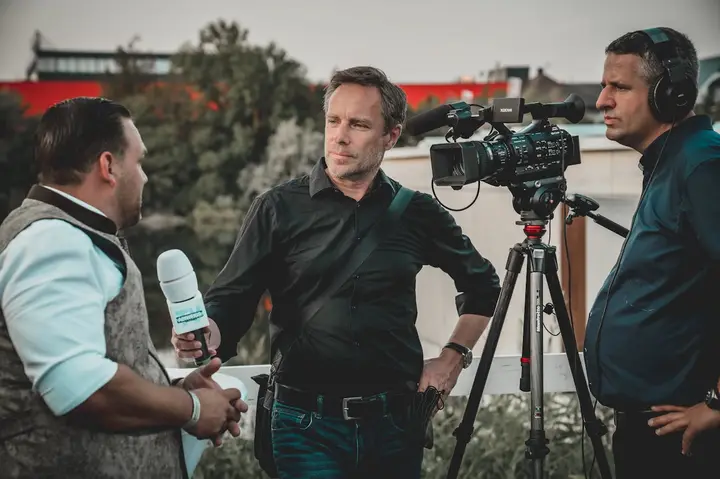What is the fallout from the killing of Ismail Haniyeh in Tehran? | Inside Story
Posted by: sunxin in News 3 months, 2 weeks ago
The Assassination That Shook the Middle East: A Deep Dive into the Aftermath of Haniyeh's Death
The Assassination of Isma Hania: A Pivotal Moment in Middle East Tensions
Posted by: sunxin in News 3 months, 2 weeks ago
In a stunning turn of events, Isma Hania, the political leader of Hamas, was assassinated in Iran, sending shockwaves through the Middle East. This incident has raised more questions than it has answered, and the implications are far-reaching. Let's delve into the details and understand the significance of this event.
The Ticking Time Bomb: A Regional War in the Making
Posted by: sunxin in News 3 months, 2 weeks ago
Are we on the brink of a full-blown regional conflict in the Middle East? The recent targeted assassinations of key Hezbollah and Hamas leaders by Israel have set the stage for a potential powder keg. In a series of swift strikes, Israel said it had eliminated senior Hezbollah Commander Fad Shukar in Beirut, followed by the assassination of Hamas's political leader Ismael Han in Tehran. These attacks have not only escalated tensions but also raised questions about the implications of such actions on the already volatile region.
The Unsilenced Voices of Gaza: A Tragic Reality Beyond Headlines
Posted by: sunxin in News 3 months, 2 weeks ago
In the heart of conflict, there exists a truth that transcends the boundaries of mere reporting—it is the lived experience of journalists. As Maran Bashara Al Jaer, a senior political analyst, poignantly highlighted, these journalists aren't just covering the story; they are living it.
The ticking time bomb in the Middle East: Iran's proxies and the quest for peace
Posted by: sunxin in News 3 months, 2 weeks ago
The Middle East, a region rich in history and diversity, is once again at the brink of chaos. A recent string of attacks, leveraging Iranian weapons and launched from Lebanon's Hisbah-controlled territories, has cast a shadow over the region's stability. This raises a critical question: Can the international community, particularly the United Nations Security Council, effectively address the threats posed by Iran and its proxies?
The Enigma of Middle East Tensions: A CIA Insider's Insight
Posted by: sunxin in News 3 months, 2 weeks ago
Are the tensions in the Middle East on the brink of escalating into a full-blown regional conflict? In a recent discussion, a former deputy National Intelligence officer for transnational threats, Glenn Carl, shared his intriguing perspective. Let's delve into the heart of these unfolding events.
The UnSilenced: The Tragic Tale of Jazeera's Ismail Al-Ghoul and Rami Rayan
Posted by: sunxin in News 3 months, 2 weeks ago
In the harrowing chaos of conflict, there are moments that pierce the veil of normalcy, moments that shake us to our core. One such moment unfolded in Gaza, a place where the only constant is the uncertainty of peace.
The Silent War on Truth: The Tragic Fate of Palestinian Journalists
Posted by: sunxin in News 3 months, 2 weeks ago
In a world where information is power, the targeting and assassination of journalists represents a chilling attack on the very essence of democracy. The惨 scene that has become all too familiar—Palestinian journalists targeted and killed by Israeli forces—strikes at the heart of journalistic integrity and the public's right to know.
The Silenced Cri de Coeur: A Region on the Brink
Posted by: sunxin in News 3 months, 2 weeks ago
In the hallowed halls of international diplomacy, a cri de cœur has been raised, one that echoes the urgent whispers of a region teetering on the precipice of chaos. The emergency convening of the United Nations Security Council speaks to a matter of profound gravity, a challenge to the very principles upon which this esteemed body stands.
The Hypocrisy of Hypocrisy: Unveiling Iran's True Colors
Posted by: sunxin in News 3 months, 2 weeks ago
In a world where the scales of justice are often tilted, a recent meeting brought to light the rank hypocrisy that shrouds international diplomacy. The convening nation, the Islamic Republic of Iran, stands accused as the planet's leading sponsor of terrorism, a title it wears with appalling pride. This meeting was a theater of the absurd, where the sponsor of barbarism had the audacity to discuss peace and security.
Recent Posts
- Tragedy Unfolds: The Heartbreaking Attack at Mogadishu's Leo Beach
- Clash in Liverpool: The Battle Between Anti-Racism and Anti-Immigration
- Tragedy Unfolds: Kerala's Heartbreaking Battle with Landslides
- Tragedy in Tarim: A Glimpse into the Aftermath of Israeli Aerial Strikes
- The Tragic Attack on Hamama School: A Story of Innocence Lost in Shik Radwan
Categories
- Official Announcement (3)
- News (1653)
- 新闻 (28)
- Technology (300)
- 科技 (235)
- 科普 (418)
- Science (409)
- 公开课 (180)
- MOOC (183)
- Business (36)
- 揭秘 (143)
- Mysteries (124)



